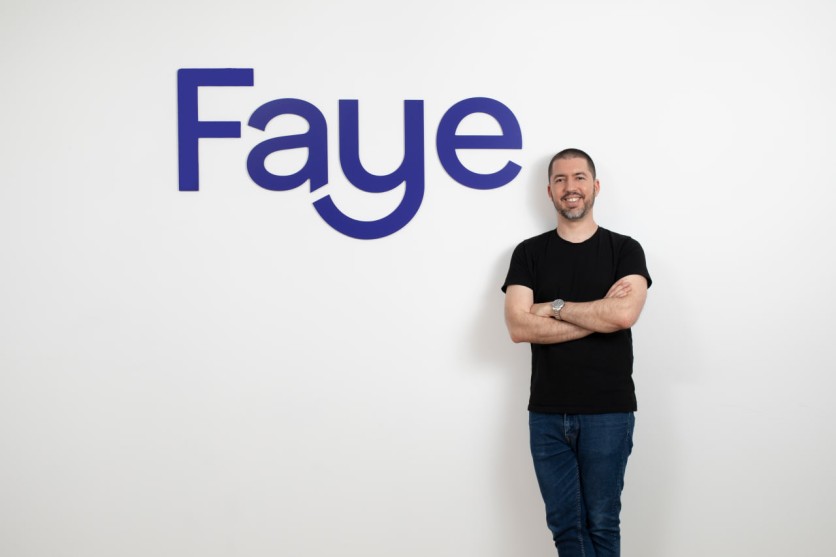
Only a few years ago, insurtechs were the talk of the town. High-profile companies like Lemonade, Hippo, and Root made headlines by going public, having raised hundreds of millions in capital and amassing similar numbers in gross written premium.
However, the recent financial crisis has drastically shifted this sentiment, leading to a 70 to 80% drop in stock performance and mounting criticism over the companies' perceived lack of insurance fundamentals.
CEO of travel insurance startup Faye, Elad Schaffer, believes this shift in sentiment is only half the story. "Like all hype cycles, we've probably moved past the peak of inflated expectations," he says, referencing Gartner's Hype Cycle model of application evolution. "But we're just as likely on the cusp of the 'slope of enlightenment', where we can anticipate significant, yet healthier growth."
Schaffer is quick to defend the first wave of insurtechs. "They weren't a disaster, far from it. They deserve tons of respect and there's a lot to learn from them. But there are many lessons to be learned from the new wave of companies innovating in and around insurance."
Here's a closer look at what Schaffer says early insurtech companies got right, and what insurtech 2.0 companies are doing to overcome their shortcomings.
What Insurtech 1.0 Got Right:
Identifying the Opportunity
"The first wave of insurtechs correctly identified a market ripe for innovation," says Schaffer. "They saw an industry in dire need of better digital experiences, smarter underwriting, superior customer service and automation. They understood the sheer size of the opportunity and seized it."
Enhancing the User Experience
"Companies like Lemonade set the bar in designing an unparalleled purchase experience," Schaffer notes. "They streamlined the claim process, making it quick and intuitive. This level of execution is top-notch on a global scale, going beyond insurance."
Building Friendly Brands and Faster Customer Service
Schaffer applauds the first wave of insurtechs for their efforts to reverse the insurance industry's questionable reputation. "In an era where customers expect rapid responses, these companies understood the importance of speed. For many, an 'immediate response' means hearing back in 10 minutes or less," he explains.
"At Faye, we've taken this a step further. We usually respond in under a minute. We've also simplified the claims process, enabling travelers to file claims in minutes via the Faye app, even mid-trip. When addressing travel inconveniences like flight delays, cancellations or lost luggage, we can immediately send approved claims reimbursements to their phone's wallet via Faye Wallet, which can be added to Apple Pay or Google Pay for instant access and use."
What Insurtech 2.0 Needs to Get Right:
Focus On Insurance Fundamentals
"Insurance fundamentals cannot be overlooked," Schaffer emphasizes. "Factors like loss ratios and risk selection are as crucial as growth. Emerging MGAs and carriers must incorporate these into their strategies from the outset. Optimizing for future profitability should take a front seat early on."
Diversified Distribution = Healthy, Sustainable Growth
Schaffer highlights the importance of diversifying revenue streams for achieving sustainable and healthy distribution. "Companies that sought to completely replace travel agents soon realized that agents are a force to be reckoned with and collaborate with, as are other forms of distribution, such as embedded insurance."
Continues Schaffer, "At Faye, diversified distribution was a priority from day one. We sell travel insurance and assistance through a network of partners, including travel agents, insurance brokers, hotels and online travel agencies. This model creates a much healthier revenue balance, while also diversifying and reducing risk."
Adopting a Holistic Approach, Beyond Insurance
Schaffer believes that simply offering an easy way to purchase insurance and a faster claims process is not enough. "When an insured individual experiences a loss, money is often only part of the solution. This is particularly true in travel, where issues like a missed connection or a lost passport cannot be remedied by money alone. At Faye, we view our role as the ultimate protector and companion for travelers from the moment they purchase their trip coverage to the moment they return home."
Adds Schaffer, "Our technology and team provide 24/7 assistance, prioritizing solving travelers' problems over simply reimbursing them for losses. It's about being the No. 1 expert resource at all times. Done right, companies once thought of as 'just' insurtechs will combine insurance with real-time assistance, proactive monitoring and alerts and a suite of financial solutions. For Faye, that's where travel meets fintech."
It's Not Just About Selling Policies ...
The future of insurtech lies not just in digitizing insurance processes, but in a more holistic approach to customer service. The next wave of insurtechs must go beyond insurance, providing real-time assistance, proactive information and comprehensive solutions that cater to the customer's needs at every stage.
It's about transforming insurance from a grudge purchase into a trusted resource - a reliable companion that's there for you not just when things go wrong, but throughout your journey.
This is the dawn of Insurtech 2.0 - a new era where technology, innovation and a deep understanding of customer needs meet healthy growth and a strong focus on business and insurance fundamentals.
As companies move beyond the hype, optimize for long-term returns and go beyond insurance, they can do more than just sell policies. They'll be able to provide true peace of mind.
ⓒ 2025 TECHTIMES.com All rights reserved. Do not reproduce without permission.




